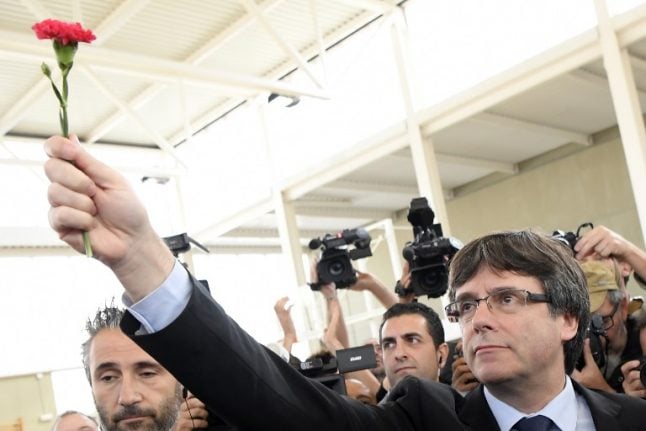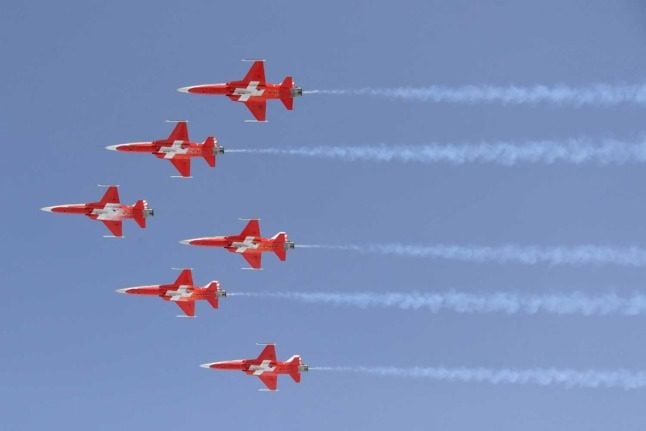“With this day of hope and suffering, the citizens of Catalonia have won the right to an independent state in the form a republic,” he said in a televised announcement.
His government claimed that 90 percent of voters backed independence in a banned referendum marred by clashes.
AS-IT-HAPPENED: Clashes at polling stations as Catalans vote in referendum
He called on the EU to stop looking “the other way” following a police crackdown on the referendum banned by Madrid, calling it “unjustified, abusive and serious police violence dictated by the Spanish government.”
However Spanish Prime Minister Mariano Rajoy declared the Sunday plebiscite had been blocked, saying “today there has not been a self-determination referendum in Catalonia,” a region deeply divided over independence.
READ MORE: Rajoy says rule of law prevailed by blocking Catalan vote
Further adding to tensions, unions and Catalan associations called a region-wide strike for Tuesday due to “the grave violation of rights and freedoms,” urging people to take to the streets in Catalonia, a major engine for Spanish growth.
In a press briefing, regional government spokesman Jordi Turull said 2.02 million Catalans voted for independence, or a 42.3 percent turnout.
He said that represented “90 percent” of the votes cast, while 7.8 percent said “no” to the question: “Do you want Catalonia to become an independent state in the form of a republic?”
A further two percent cast a blank vote, he added, and 0.5 percent of ballots were void.
At least 92 people were confirmed injured out of a total of 844 who needed medical attention, Catalan authorities said, as police cracked down on a vote Spain's central government branded a “farce”.
Riot police moved in on polling stations in Barcelona and other towns and cities in the Catalan region as people tried to vote, in some cases baton-charging and firing rubber bullets to disperse crowds.

Madrid had warned Catalan separatist leaders they could not hold the vote in a region deeply divided over independence, stating it was illegal and courts had ruled it unconstitutional.
But they had retorted that Catalans had a right to decide on their future and pressed ahead anyway.
Videos posted on social media showed police dragging voters from polling stations by their hair, throwing people down stairs and attacking Catalan firefighters who were protecting polling stations.
More than 800 people received medical attention as a result of the crackdown, according to regional authorities.
“The Spanish government has today written a shameful page in its history with Catalonia. Sadly it is not the first. Too often repression and violence have been the state's response to Catalan aspirations,” Puigdemont said.
“I have to call directly on Europe,” he added. “The European Union can no longer continue to look the other way.”
“The situation that has been generated in Catalonia by intransigence and repression, by the absolute denial of reality, by hostility to the democratic demands of the citizens of our country, is no longer an internal matter.
“It is a matter of European interest, which appeals directly to the foundational values in the area of peace, freedom, coexistence and democracy that we have been building for decades and with very different
accents,” he added.
Earlier, Prime Minister Mariano Rajoy said that the rule of law had prevailed in Catalonia.
“Today there has not been a self-determination referendum in Catalonia,” he added.



 Please whitelist us to continue reading.
Please whitelist us to continue reading.